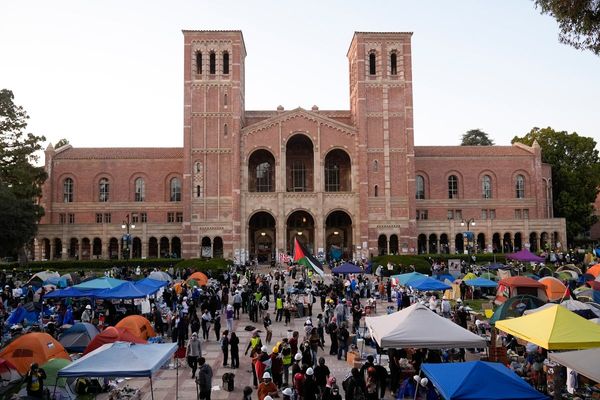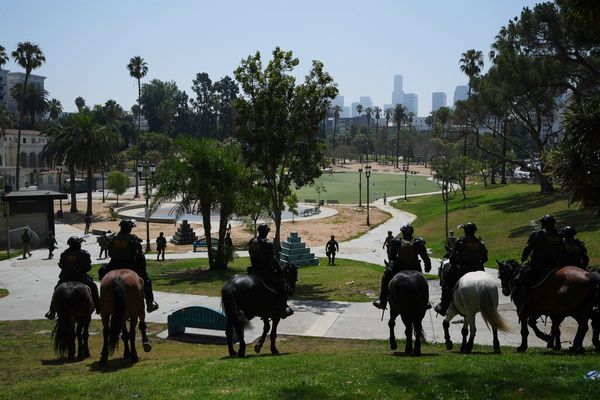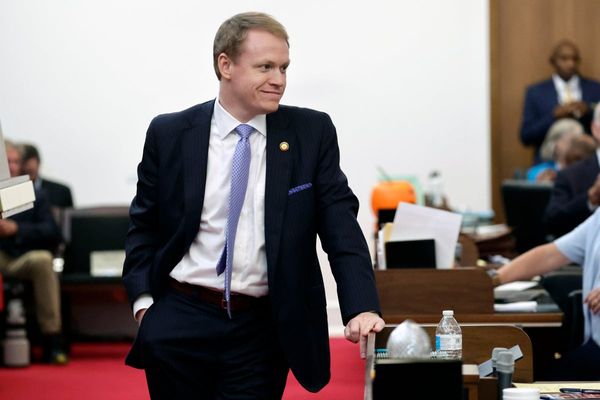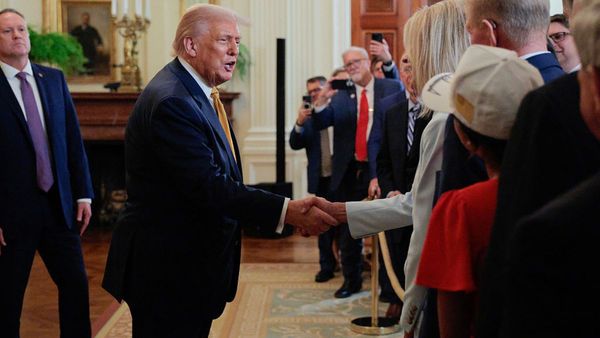Michel Barnier has become the shortest-serving French prime minister in modern history as opposition parties have ousted his government in a historic no-confidence vote – which hands president Emmanuel Macron a fresh political crisis.
Mr Barnier’s government is the first to be forced out by such a vote in more than 60 years, with the trigger being a clash over the country’s budget for next year. A majority of 331 voted in support of the motion to remove him; a minimum of 288 was needed.
Opposition parties tabled the motion after Mr Barnier controversially used special constitutional powers to force through a budget without a vote. The former Brexit negotiator was only appointed by Mr Macron in September.
The National Assembly, France’s lower house of parliament, is deeply fractured, with no single party holding a majority. It comprises three major blocs: Mr Macron’s centrist allies, the left-wing coalition New Popular Front, and the far-right National Rally (RN). Both opposition blocs, typically at odds, have united against Mr Barnier, accusing him of imposing austerity measures and failing to address citizens’ needs.
“We have arrived at the moment of truth,” far-right National Rally leader Marine Le Pen told parliament as the debate on the no-confidence motions started. And hard-left France Unbowed MP Eric Coquerel told Mr Barnier: “You will be the first prime minister to be censured since Georges Pompidou in 1962.”
Fellow LFI member Mathilde Panot demanded that Mr Macron also resign, though the French president has insisted he will stay until his term ends in 2027.
The genesis of this latest crisis was the snap election called by Mr Macron in the summer that led to a hung parliament. While the left-wing alliance topped the July poll and National Rally was the single party with the most votes, Mr Macron’s centrists eventually struck a deal with the centre-right and conservatives to form a government.
The president spent weeks in drawn-out talks with figures from across the political spectrum, before eventually settling on Michel Barnier to head a government. This time, Mr Macron is said to be aiming to install a new prime minister quickly, three sources told Reuters.
One of the sources said Mr Macron hoped to have someone in place as soon as Saturday, when a high-powered guest list, including US president-elect Donald Trump, is due to gather in Paris for the reopening of Notre-Dame Cathedral. “Nothing has been decided,” the Elysee said in response to a request for comment.
That would avoid leaving a hole at the heart of the European Union at a time when Germany is also weakened and in election mode, just weeks before Mr Trump re-enters the White House.
However, any new prime minister would face the same challenges as Mr Barnier in getting bills, including the 2025 budget, adopted by the divided parliament. There can be no new parliamentary election before July.
In a TV interview on Tuesday, Mr Barnier said he still believed his government could survive and called on MPs to act with “responsibility” and think of “the country’s best interest.”
“The situation is very difficult economically, socially, fiscally and financially,” he said, speaking on national television TF1 and France 2 on Tuesday evening. “If the no-confidence motion passes, everything will be more difficult and everything will be more serious.”
But RN chief Jordan Bardella said such optimism showed that the government was “completely out of touch with what is happening in the country”.
“Stop pretending the lights will go out,” Mr Coquerel said, noting the possibility of an emergency law being adopted to levy taxes from 1 January based on this year’s rules. “The special law will prevent a shutdown. It will allow us to get through the end of the year by delaying the budget by a few weeks.”
The tumult that has followed Mr Macron’s decision to call a snap election in the summer has diminished his standing at home and abroad. Since then, France’s CAC 40 stock market index has dropped nearly 10 per cent and is the heaviest loser among top EU economies.
Mr Macron’s term as president runs until mid-2027 and he cannot be forced out by parliament, but the RN and the hard left have already been saying he should resign as he faces his biggest crisis in years.
As he lacks a majority in parliament, Mr Macron’s opponents could shoot down one pick for prime minister after another.
Ms Le Pen says a government reshuffle stands little chance of long-term success, while a dissolution of parliament is constitutionally not possible before July – 12 months after the last election – leaving only one option: Mr Macron steps down.
However, the constitution gives extensive powers to the president in crisis situations. He can call referendums and has the admittedly extreme possibility of invoking emergency “full powers” under Article 16, drafted by the founders of the Fifth Republic with wartime in mind. The president has responded to demands to resign by pledging to fulfil his role “with all my energy, to the last second”.







